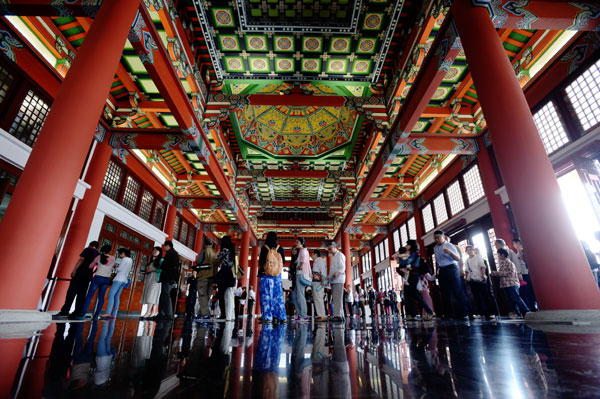Nanjing Museum captures flow of China's history
 0 Comment(s)
0 Comment(s) Print
Print E-mail China Daily, June 6, 2014
E-mail China Daily, June 6, 2014
|
|
|
Visitors to the Nanjing Museum are impressed by its architecture even before they can explore the collections inside. [Anfernee / For China Daily] |
Viewing the stone city gate in a vista of flourishing platanes, nostalgic summertime trips to the Zhongshanmen area in the east of Nanjing never bore me. The road was built in the late 1920s to escort Sun Yat-sen's body to his mausoleum.
The capital city of Jiangsu province, witness to the vicissitudes of many dynasties, always feels solemn.
When I step into the Nanjing Museum, which has quietly rested by the tree-lined road for over 80 years, I deeply regret that I didn't take this extraordinary time-travel experience much earlier.
Like the Forbidden City in Beijing, this museum impresses visitors with its architecture even before anyone explores the treasures indoors.
With heavy wooden beams and columns plus its upturned eaves, the dignified main hall looks ancient. But it was built in 1933, following the architectural style of the Liao Dynasty (916-1125). Facades of the new grand halls opened in 2013 perfectly coordinate with the old one.
First established as China's central museum when Nanjing was the country's capital city, the museum today covers an area of 130,000 square meters. Home of about 420,000 cultural relics, this institution is among the country's largest in terms of number of collections. About 40,000 pieces rotate in public displays.








Go to Forum >>0 Comment(s)